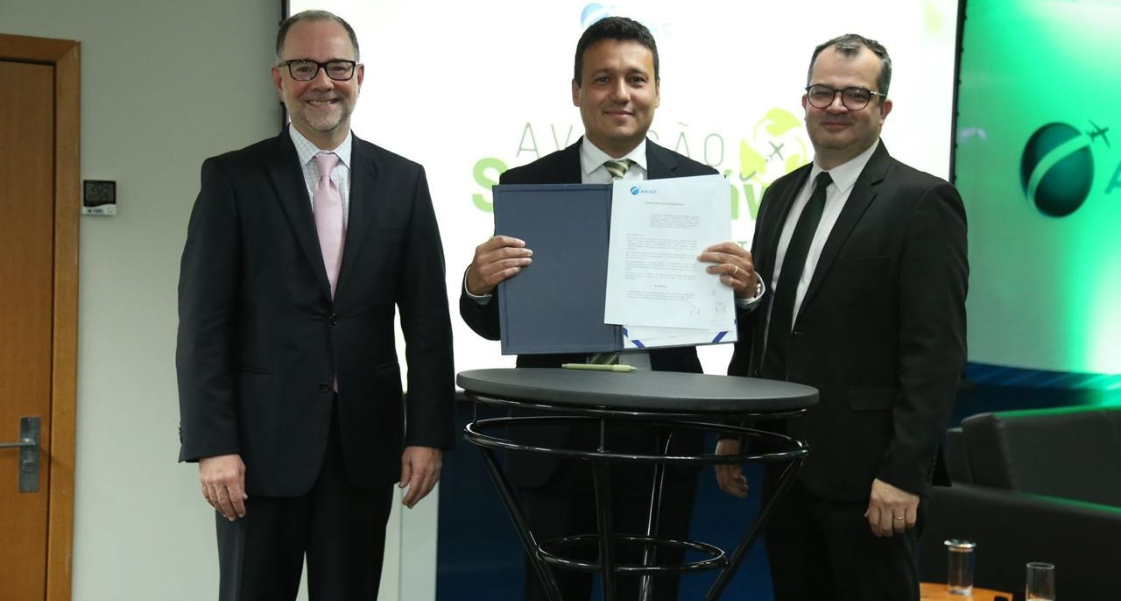Source: ACI-LAC
Airports Council International for Latin America and the Caribbean (ACI-LAC) signed a memorandum of understanding (MoU) with the National Aviation Agency (Anac) and ABR Aeroportos do Brasil to encourage the exchange of technical knowledge, experiences, data and information for the sustainable development of the civil aviation sector. The document was signed in Brasilia, during the 5th edition of the Sustainable Aviation event, organized by Anac.
The agreement provides for the direct exchange of data and information between the entities for the realization of initiatives relating to environmental sustainability, implemented by ACI-LAC-certified Brazilian airports in Brazil. The aim is to jointly develop actions and support and training materials aimed at airports to encourage the adoption of best management and environmental sustainability practices, such as the implementation of clean technologies, which will make it possible to achieve the sector goal of reducing net carbon emissions produced directly by airports to zero by 2050.
The MoU was signed by Filipe Reis, ACI-LAC’s senior consultant for airport issues, Tiago Pereira, Anac’s CEO, and Fábio Carvalho, CEO of ABR Aeroportos do Brasil.
“It’s a pleasure to have the opportunity to work together with Anac and ABR in the process of decarbonizing Brazilian airports and to see that these partners, as well as our members, are clearly committed to the goal of achieving Net Zero. We know that this is a big challenge and that ACI-LAC has a lot to contribute from the knowledge and experience it has accumulated over the years,” said Filipe Reis.
ACI-LAC certified airports in Brazil
The Airports Council International (ACI) operates the world’s only airport certification program for carbon emissions management, the Airport Carbon Accreditation Program. It evaluates and recognizes airports’ efforts to manage and reduce their emissions through 6 levels of certification.
In Brazil, 8 airports have already achieved certification under the ACA program. These are Florianópolis International Airport, Vitória International Airport, Macaé Airport, Brasília International Airport and Santos Dumont Airport (level 1 – “Mapping”); Salvador International Airport and Rio de Janeiro International Airport (level 3 – “Optimization”); and Belo Horizonte International Airport (level 3+ – “Neutrality”).

